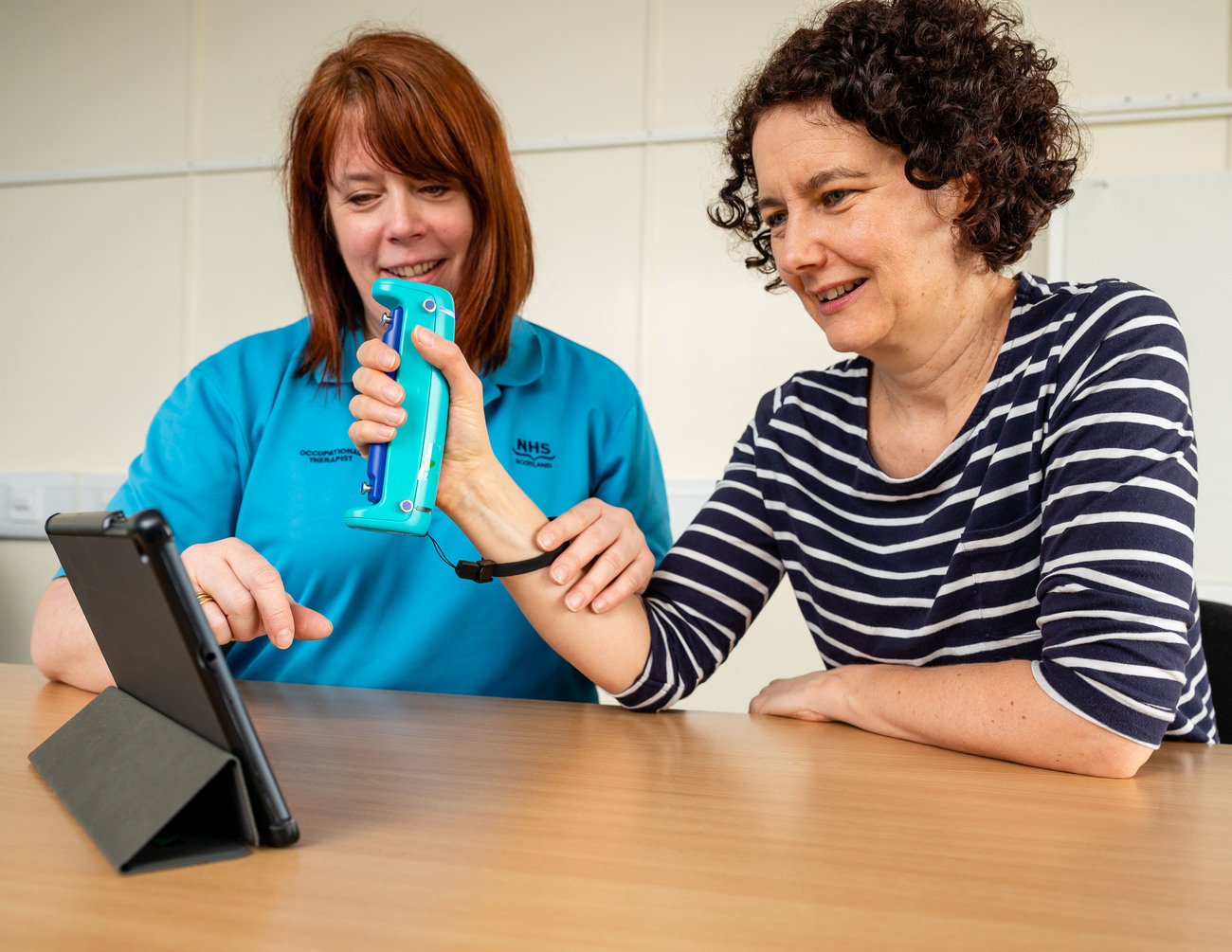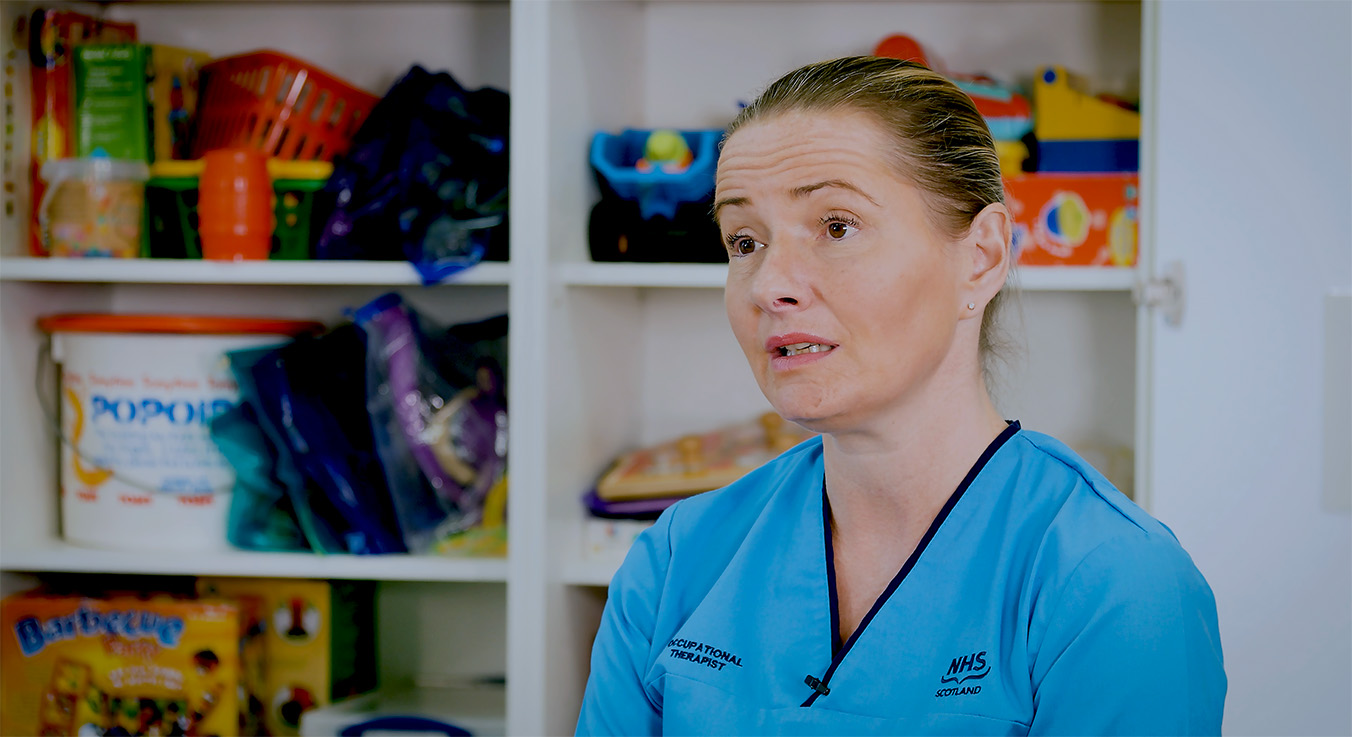Previous
Music therapist
You'll need a degree in Occupational Therapy to become an occupational therapist in the NHS. In Scotland, 3 universities offer pre-registration degree programmes.
Occupational therapists enable people of all ages to be as independent as possible in activities that matter to them.
The ability to engage in everyday tasks and activities can be impacted by physical conditions, injury, mental health and ageing.
Occupational therapists work alongside people to consider new ways of doing activities or changing their environment to make things easier.

To get on a course that could lead to a career as an occupational therapist, useful subjects include:
Speak to your guidance teacher about subjects offered at your school.

You may find it helpful to get some healthcare experience by doing a work placement or volunteering. You’ll get training, increase your knowledge, and learn new skills. This could help you when applying to university, college or a new job with NHSScotland.
Most universities accept a wide range of qualifications, giving you the option of applying directly from school or going to college first.
At college, you could do an HNC in Healthcare Practice. With an HNC in Occupational Therapy Support, some universities may let you start your degree in year 2.
Widening participation supports adult learners who want to go to university. If you’re an adult with few or no qualifications, you could get into higher education through the Scottish Wider Access Programme (SWAP). Many universities also provide access programmes to help you get the degree entry qualifications you need.
In Scotland, 3 universities offer undergraduate programmes in Occupational Therapy approved by the Health and Care Professions Council (HCPC):
Pre-registration undergraduate programmes take 4 years full-time.
If you have relevant qualifications and healthcare experience, you can do a master’s degree in Occupational Therapy. A pre-registration postgraduate course usually takes 2 years.
After graduation, you must register with the HCPC. You can then apply as a newly qualified occupational therapist for vacancies in the NHS.
Occupational therapists must be registered with the HCPC to work in the NHS.
As an occupational therapist, you'll care for people of all ages with different needs and goals, including:
Tasks include:
You'll need these skills:
Occupational therapists work with other healthcare professionals, including:
You could work in:

Check out our 360 videos and find out how occupational therapists help people to engage in everyday tasks and activities.
You'll meet Michelle, a clinical specialist occupational therapist working at NHS Lothian. In these videos, Michelle uses different activities and techniques to assess a persons dexterity, speed, and fine motor skills and visual perception abilities.
During your career, you'll have to keep your skills and knowledge up to date with continuing professional development.
The Royal College of Occupational Therapists (RCOT) provides courses, conferences, and seminars where you can exchange ideas and update skills.
As an occupational therapist, you could work in:
With further training and experience, you could progress to more senior or specialist roles.
You may decide to become a specialist in a particular area, such as supporting people with dementia, mental health problems, or those receiving palliative care.
Occupational therapists also work as service managers in health and social care partnerships.
When you become a qualified occupational therapist, you must register with the HCPC to work in the NHS. You can also join the Royal College of Occupational Therapists.

Discover the range of AHP careers you can choose in the NHS.
Allied health professions
Our blog includes how-to guides, case studies, and career resources.
Discover more